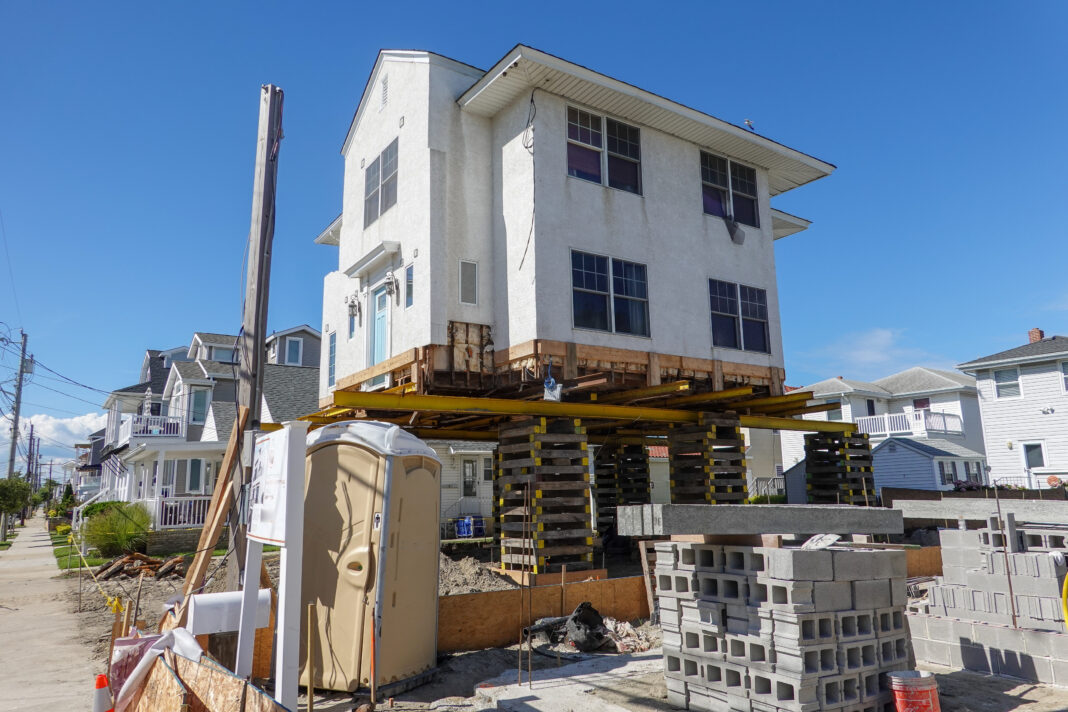The NJ PACT (Protecting Against Climate Threats) and REAL (Resilient Environment And Landscape) legislation are initiatives by the New Jersey Department of Environmental Protection (DEP) aimed at addressing climate change and enhancing resilience. These proposals, currently under review, have sparked significant debate among stakeholders regarding their potential impacts on property values and affordable housing initiatives.
Impact on Property Values
One of the most contentious aspects of the NJ PACT/REAL legislation is its potential to reduce property values, particularly in coastal and urban areas. The legislation includes provisions that assume a 5-foot sea level rise by 2100 and apply this standard today. This assumption leads to the creation of “no build” zones on barrier islands and coastal communities, including urban areas like Hoboken, Long Branch, and Asbury Park. These restrictions are expected to:
- Reduce Property Values: Properties in these areas may see a decline in value due to the increased risk of flooding and the limitations on development.
- Increase Insurance Costs: Homeowners may be forced to purchase expensive flood insurance, even in areas that have never flooded and are unlikely to do so.
- Loss of Local Tax Revenue: As property values decline, local governments may experience a reduction in tax revenue, which could impact public services and infrastructure.
Impact on Homeowners in “No Build” Zones
Homeowners living in the “no build” zones face significant challenges. They may find it difficult to sell their properties due to the restrictions on development and the perceived risk of flooding. Additionally, these homeowners might have to invest in costly flood mitigation measures to comply with the new regulations. The uncertainty and potential financial burden can lead to stress and anxiety for affected homeowners.
Impact on Affordable Housing Initiatives
The NJ PACT/REAL legislation also poses challenges for affordable housing initiatives. The restrictions on development in certain areas could limit the availability of land for new affordable housing projects. This is particularly concerning given New Jersey’s ongoing struggle to meet affordable housing needs.
- Reduced Availability of Land: The creation of “no build” zones and other restrictions could limit the amount of land available for affordable housing development.
- Increased Costs for Developers: Developers may face higher costs due to the need to comply with new regulations and the potential for increased insurance premiums.
- Impact on Redevelopment Efforts: Urban areas that are targeted for redevelopment may face additional hurdles, making it more difficult to create affordable housing in these regions.
Balancing Environmental and Housing Goals
While the NJ PACT/REAL legislation aims to address critical environmental concerns, it is essential to balance these goals with the need for affordable housing. Governor Murphy’s administration has made strides in affordable housing reform, with new legislation aimed at clarifying housing obligations and jump-starting construction. However, the success of these initiatives will depend on how well they can be integrated with the new environmental regulations.
- Certainty for Stakeholders: The new affordable housing laws provide more certainty for advocates, municipalities, and developers, potentially reducing litigation and focusing efforts on creating affordable homes.
- Collaboration and Adaptation: It will be crucial for state and municipal legislators to collaborate and adapt their approaches to ensure that both environmental and housing goals can be met.
Advocacy organizations have been trying to make local government aware of their concerns and allow people to voice those questions. Their efforts are here.
In conclusion, the NJ PACT/REAL legislation presents both challenges and opportunities for New Jersey. While it aims to protect against climate threats, it also has significant implications for property values and affordable housing initiatives. Balancing these priorities will require careful planning and collaboration among all stakeholders to ensure a sustainable and equitable future for the state.
Sources:
NJPACT REAL Myths and Facts – New Jersey Department of Environmental …. https://dep.nj.gov/njreal/facts
Help Oppose the PACT REAL Rule – NJBA. https://njba.org/2024/09/11/realrule
Real Impact NJ. https://realimpactnj.com
NJBIA: DEP’s Proposed Land Use Rules Will Force Retreat from NJ Shore https://njbia.org/njbia-deps-proposed-land-use-rules-will-force-retreat-from-nj-shore/




